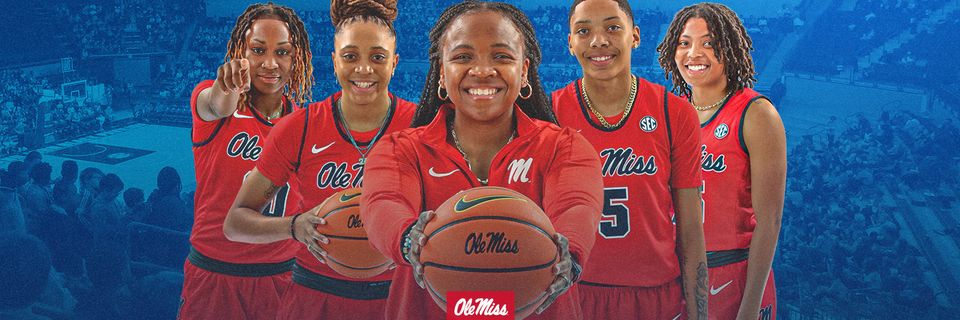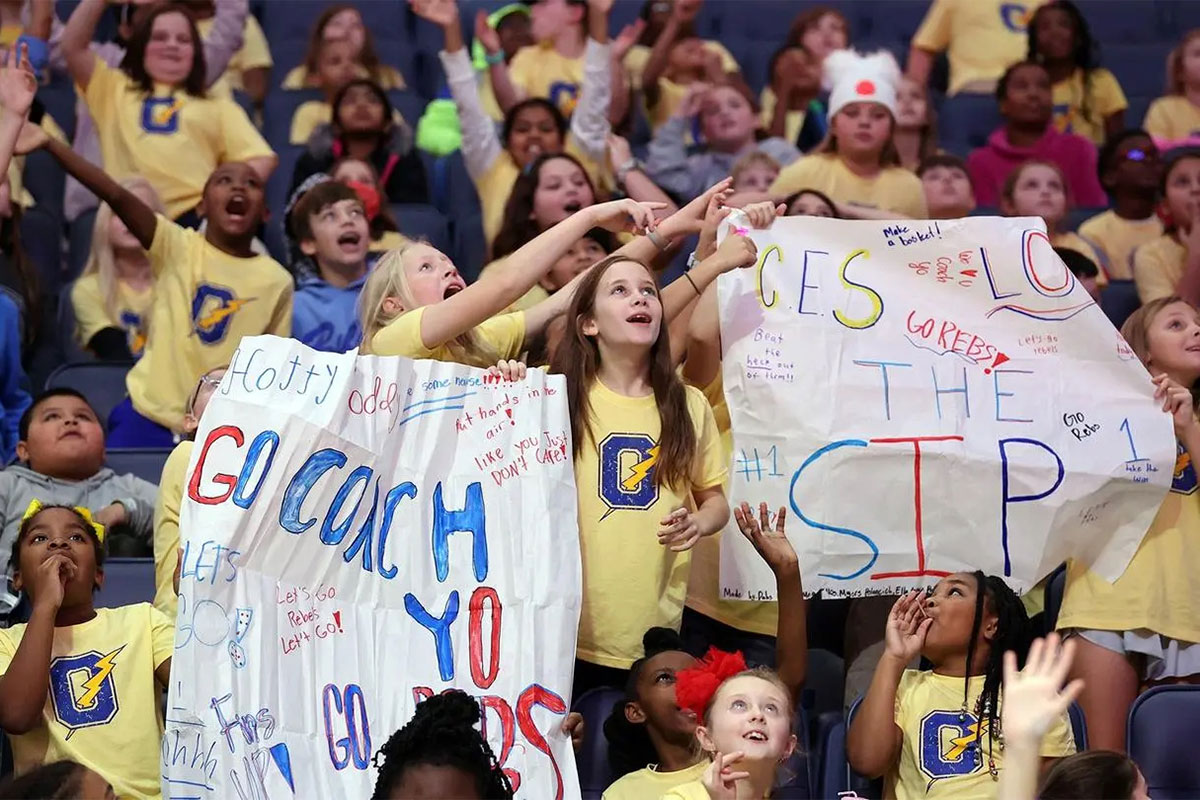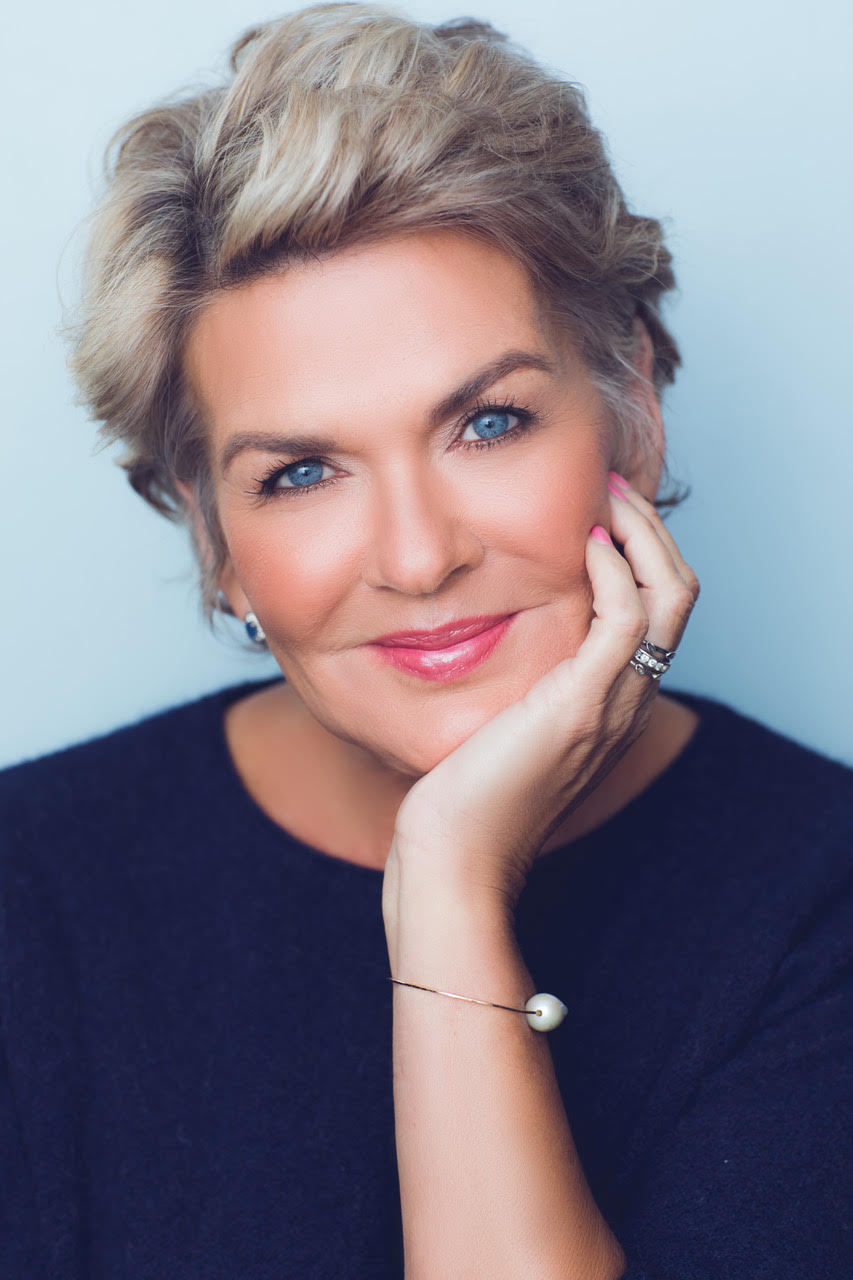Almost 9,000 Mississippi junior high school students packed the SJB Pavilion at Ole Miss recently to watch a fiery basketball game between the Lady Rebels women’s basketball team and the Jacksonville State Dolphins.
The students, so happy to be out of school, cheered the team just as loudly as Ole Miss fans always cheer for the Rebels’ football team. As a former Lady Rebel with memories of the team from 1976, I cheered loudly, too. I am a big fan. With each game, the Lady Rebels get better and better and are breaking records.
Starting with eight wins and two losses on “Kids Day,” the Lady Rebels beat the Florida team with 14 points, then a few days later clobbered Auburn with 22 points and then tackled McNeese State (St. Charles, LA) with 19 points. Most joyous was their defeat Sunday of Mississippi State, 61 to 50, for the first time since 2007. These victories placed them at position two of 14 women’s teams in the Southwestern Conference.
Since the “Kids Day” win, they’ve conquered five teams straight with a 2-0 SEC score and a 13-2, win/loss. Yet, the home-game seats remain largely empty, with the exception of the junior high students.
Coach Yo: ‘We Need the Support Back’
Ole Miss women’s basketball coach, Yolett McPhee-McCuin, also known as Coach Yo, addressed my question at a press conference after the game.
“You win games with home court advantage,” she said—something that many basketball fans often say about the “home court advantage”—whether in high school, college or on professional teams. Your chances of winning are greater with a packed, loud stadium of fans versus an empty one.
“Sometimes it’s sad for us to come out and not have people in the stands. I’m just going to be completely honest. It’s discouraging when we bring top recruits across the country, and no one’s here. It’s discouraging when our players work their butts off. We need people to come out and support women’s basketball.

McPhee-McCuin says her players are doing their part for the University of Mississippi and Oxford and deserve a better turnout for games.
“We are in the community. We are giving you everything we have. We love Oxford. We need the support back. That is my stance, and I am going to shout it to the roof tops. Look what (public support) does for football. Look what it’s done for baseball,” Coach Yo continued. “We can do the same for women’s basketball if we get the support. … Love us like we love you,” added Coach Yo, who during her first four years at Ole Miss flipped the team’s win-loss from a 9-win, 22-lost season to a 23-win, 9-lost season last year.
The team’s fifth season with Coach Yo and the Lady Rebels (I call them Lady Rebels, but it’s no longer their official name) is going strong. While writing this piece, the team beat McNeese State (LA) with a 19-point lead during a home game with few people in the stands.
‘Relentless In Elevating Our Program’
Instead of Kids Day, what about an Adults Day? University students, some of their parents, Oxford residents, Ole Miss staff, professors, deans, the provost and the chancellor and his office should go to see the women who are working hard to become one of the top women’s teams in the country. That is something to cheer about.
Earlier this year, Ole Miss extended Coach Yo’s contract to 2026. She is recognized as a leading women’s college basketball coach nationwide.
“We have continued to state emphatically that Ole Miss is going to compete for championships, and under Coach Yo’s leadership, our women’s basketball team has risen to that level of competitiveness,” Ole Miss Vice Chancellor for Intercollegiate Athletics Keith Carter told Sports Illustrated about the contract extension.
“She has been relentless in elevating our program on the court, in the classroom, in the community, and in every element of our student-athletes’ experience.”
| Highlights of Ole Miss Women’s Basketball defeating McNeese 79-60 on December 17, 2022. Notice the bare stands in the background. |
Yo is relentless, and filling the pavilion with Ole Miss fans is what she needs for the relentless Lady Rebels to not only win, but to also hear and see fans cheering them on as they feel the glory of victory. This is not a female “feelings” thing. Males love fan admiration and attention, too.
Truth is, women athletes in all sports long for the attention and admiration that men athletes often receive. They also long for funding from supporters, donors and the university itself to build their programs and recruit the best players.
Take Mississippi’s own football star Brett Favre, who wanted a volleyball stadium built for his daughter at the University of Southern Mississippi. Good for him. But he acquired from a state program designed mostly to help low-income women with children to try and build the stadium. Why didn’t Favre just raise the money from Southern Mississippi’s donors or the university itself? Maybe he feared no one would cough up money for a women’s volleyball stadium, but two Mississippi governors helped him find the money anyway—funds that legally must be used for people with little money, little education and little-to-no influence.
Equal Funding for Women’s Sports?
By the way, a university, college or high school must legally provide equal funding for women and men’s sports programs under Title IX—a 50-year-old federal law that requires any educational facility receiving federal funding to not discriminate against women and their athletic programs. Unfortunately, Ole Miss and Southern join a long list of universities across the country who are not putting equal resources into women’s sports.
Title IX, though, has resulted in motivating girls and young women to play sports. Data from 2010-11 suggest that 41% of the high school athletes in the U.S. were female compared to the participation before the implementation of Title IX, which was only 7%. Similarly, in college athletics, female participation increased 456% from 29,972 in 1971-72 to 166,728 in 2007-2008.
Most importantly, women athletes are able to progress in other aspects of their lives. A study from 2010 found that participation in sports helped increase the employment and education levels of females in America. Playing ball from sixth grade to my freshman year at Ole Miss produced not only stronger muscles on me, but also the muscle to tackle the workplace where, like sports, discrimination and sexual misconduct are rampant.
I stopped playing ball after one season because other women on the team were so much better than me, but that was OK. I found my calling in journalism and politics. Basketball, as with most sports, builds confidence in girls and young women and encourages cooperation among female team members. They learn how to be brave, accept responsibilities, work hard to score and win, and support their teammates in passes, rebounds and shots.
Every junior high student cheering the Lady Rebels’ recent victory will need these skills in high school, college and then in work, even if they never play a sport or don’t get to play much.
Every girl or young woman who is playing a sport should be supported not only with funding and donations but also people of all ages in the stands, cheering them on to victory.
This MFP Voices essay does not necessarily represent the views of the Mississippi Free Press, its staff or board members. To submit an essay for the MFP Voices section, send up to 1,200 words and sources fact-checking the included information to azia@mississippifreepress.org. We welcome a wide variety of viewpoints.






